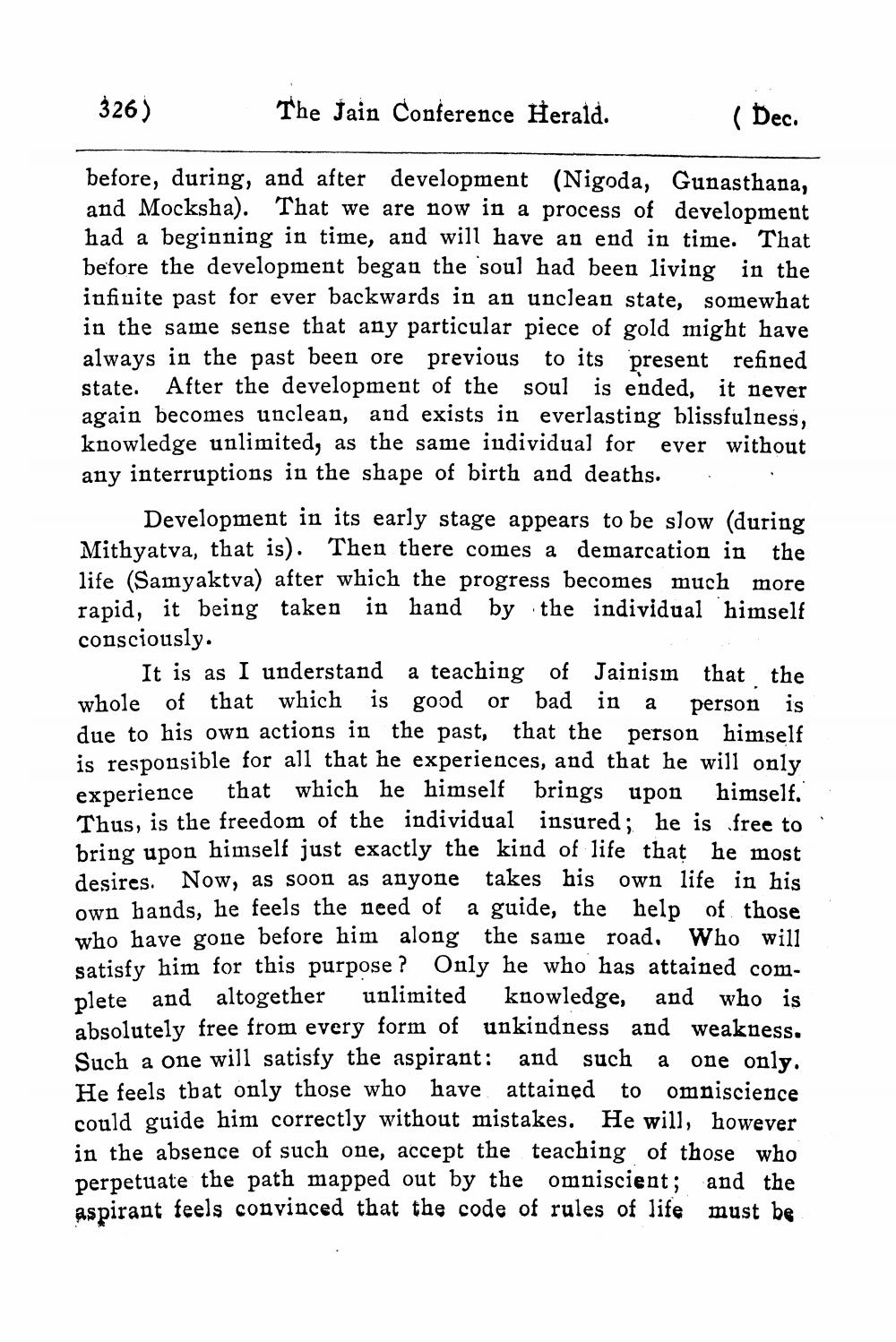________________
326)
The Jain Conference Herald.
( Dec.
before, during, and after development (Nigoda, Gunasthana, and Mocksha). That we are now in a process of development had a beginning in time, and will have an end in time. That before the development began the soul had been living in the infinite past for ever backwards in an unclean state, somewhat in the same sense that any particular piece of gold might have always in the past been ore previous to its present refined state. After the development of the soul is ended, it never again becomes unclean, and exists in everlasting blissfulness, knowledge unlimited, as the same individual for ever without any interruptions in the shape of birth and deaths.
Development in its early stage appears to be slow (during Mithyatva, that is). Then there comes a demarcation in the life (Samyaktva) after which the progress becomes much more rapid, it being taken in hand by the individual himself consciously.
It is as I understand a teaching of Jainism that the whole of that which is good or bad in a person is due to his own actions in the past, that the person himself is responsible for all that he experiences, and that he will only experience that which he himself brings upon himself. Thus, is the freedom of the individual insured; he is free to bring upon himself just exactly the kind of life that he most desires. Now, as soon as anyone takes his own life in his own hands, he feels the need of a guide, the help of those who have gone before him along the same road. Who will satisfy him for this purpose ? Only he who has attained complete and altogether unlimited knowledge, and who is absolutely free from every form of unkindness and weakness. Such a one will satisfy the aspirant: and such a one only. He feels tbat only those who have attained to omniscience could guide him correctly without mistakes. He will, however in the absence of such one, accept the teaching of those who perpetuate the path mapped out by the omniscient; and the aspirant feels convinced that the code of rules of life must be




